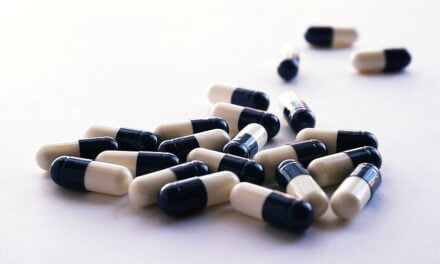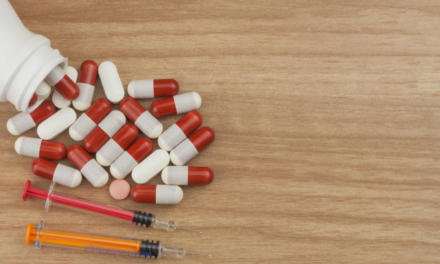Anabolic steroids are drugs commonly used to enhance athletic performance and physical appearance. While these drugs may provide short-term benefits, they also have potential risks and concerns, particularly about fertility. Fertility is a crucial aspect of human life, allowing individuals to reproduce and continue their lineage. In this article, we will explore the potential risks and concerns related to anabolic steroids and fertility and the recovery options available.
Anabolic Steroids and Fertility: How They Work
Anabolic steroids are synthetic substances that mimic the effects of testosterone in the body. They increase muscle mass, strength, and endurance and can also improve physical appearance. However, anabolic steroids also adversely affect the body, particularly fertility.
In men, anabolic steroids can cause testicular atrophy, in which the testicles shrink, and sperm production decreases. This can lead to reduced sperm count, abnormal sperm morphology, and reduced sperm motility, all of which can impair male fertility.
In women, anabolic steroids can cause irregular menstrual cycles, reduced fertility, and the development of male characteristics such as a deeper voice and increased body hair.
Potential Risks and Concerns
The potential risks and concerns related to anabolic steroids and fertility are numerous. Here are some of the most significant problems:
Male Infertility:
Anabolic steroids can cause testicular atrophy, reduced sperm count, and abnormal sperm morphology and motility, all of which can impair male fertility.
Female Infertility:
Anabolic steroids can cause irregular menstrual cycles, reduced fertility, and the development of male characteristics such as a deeper voice and increased body hair.
UK: Anabolic Steroids and Fertility Concerns
Anabolic steroids are drugs commonly used in the UK to enhance athletic performance and physical appearance. However, these substances pose significant risks and concerns, particularly when it comes to fertility. Understanding the impact of anabolic steroids on reproductive health is crucial for individuals in the UK. In this section, we will explore how these steroids affect fertility and the available options for recovery.
The Impact of Anabolic Steroids on Fertility
When it comes to fertility, anabolic steroids can have detrimental effects on both men and women. In men, the use of these substances can lead to testicular atrophy, reducing sperm production and causing issues such as reduced sperm count, abnormal sperm morphology, and decreased sperm motility. These factors can significantly impair male fertility.
Women using anabolic steroids may experience irregular menstrual cycles, reduced fertility, and the development of male characteristics like a deeper voice and increased body hair. These effects can have long-lasting consequences on reproductive health.
Risk of Birth Defects:
Maternal use of anabolic steroids can increase the risk of congenital disabilities in offspring. At the same time, paternal use of anabolic steroids can also affect the quality of sperm and increase the risk of congenital disabilities.
Risk of Miscarriage:
Maternal and paternal use of anabolic steroids can increase the risk of miscarriage.
Potential Psychological Risks:
Anabolic steroids can cause mood disorders, aggressive behavior, depression and anxiety.
Fertility Recovery After Steroid Use
Fortunately, there are options available for fertility recovery after steroid use:
Male Fertility Recovery:
Discontinuation of steroid use, hormone replacement therapy, sperm retrieval, and assisted reproductive technology are all options for male fertility recovery.
Female Fertility Recovery:
Discontinuation of steroid use, hormone therapy, and assisted reproductive technology are all options for female fertility recovery.
Conclusion
In conclusion, anabolic steroids can significantly affect fertility, both in men and women. Numerous potential risks and concerns are related to anabolic steroids and fertility, including male and female infertility, congenital disabilities and miscarriage, and possible psychological risks. If you are using anabolic steroids and are concerned about your fertility, it is essential to seek medical advice. By taking steps to recover fertility after steroid use, individuals can protect their health and the health of future generations.
FAQ
Q: What are anabolic steroids?
A: Anabolic steroids are synthetic substances that mimic the effects of testosterone in the body. They increase muscle mass, strength, and endurance and can also improve physical appearance.
Q: How do anabolic steroids affect fertility?
A: Anabolic steroids can adversely affect fertility, particularly in men. They can cause testicular atrophy, reduced sperm count, abnormal sperm morphology, and reduced sperm motility, all of which can impair male fertility. In women, anabolic steroids can cause irregular menstrual cycles, reduced fertility, and the development of male characteristics such as a deeper voice and increased body hair.
Q: What are the potential risks and concerns related to anabolic steroids and fertility?
A: The potential risks and concerns related to anabolic steroids and fertility include male and female infertility, the risk of congenital disabilities and miscarriage, and possible psychological risks such as mood disorders, aggressive behavior, depression and anxiety.
Q: Is there a way to recover fertility after using anabolic steroids?
A: Yes, fertility recovery options are available after steroid use. For men, discontinuing steroid use, hormone replacement therapy, sperm retrieval and assisted reproductive technology are all options for fertility recovery. For women, discontinuing steroid use, hormone therapy, and assisted reproductive technology are all options for fertility recovery.
Q: Should I be concerned about the impact of anabolic steroids on future generations?
A: Yes, the use of anabolic steroids can hurt future generations. Maternal use of anabolic steroids can increase the risk of congenital disabilities in offspring. At the same time, paternal use of anabolic steroids can also affect the quality of sperm and increase the risk of congenital disabilities. It is essential to seek medical advice if you are using anabolic steroids and are concerned about your fertility and the health of future generations.
Author

Dr. Aditya K. Sharma
I am Dr. Aditya Sharma, a dedicated urologist specializing in kidney transplants and advanced urological surgeries. My career is driven by a passion for delivering exceptional care and pioneering surgical techniques. Outside the operating room, I have a keen interest in studying the effects of anabolic steroids on bodybuilding, seeking to understand the fine line between enhancing performance and maintaining health.








